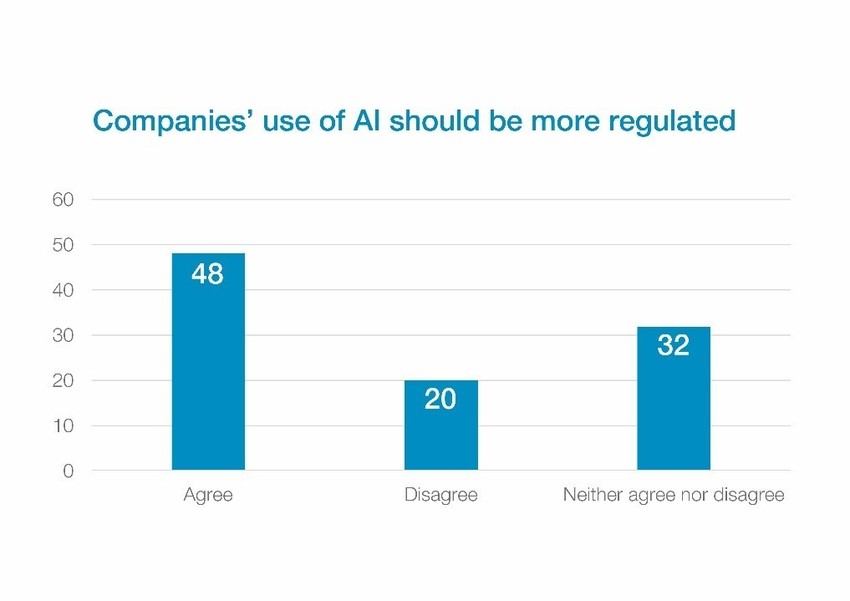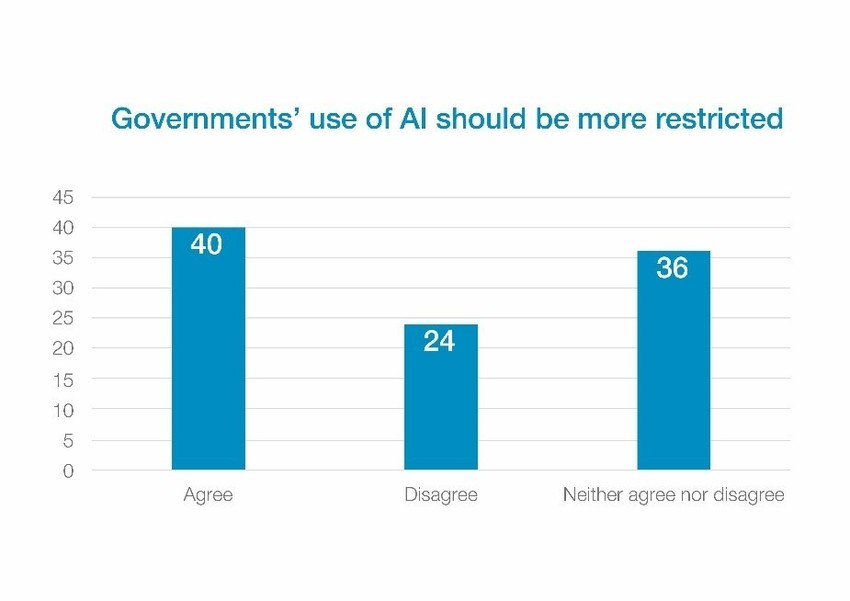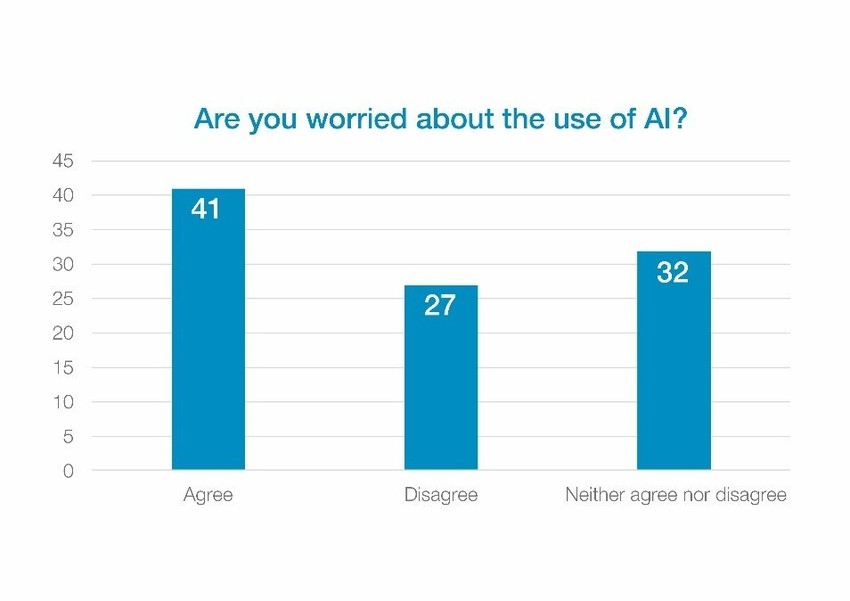July 2, 2019
Fears about impact of AI now widespread
 A significant proportion of the global population is concerned about the use of artificial intelligence (AI), with scepticism about its use by business greater than its use by government, a poll published by the World Economic Forum suggests. According to the poll, which surveys the attitudes of over 20,000 people across 27 countries, 41 percent of respondents said that they were worried about the use of AI. This compares to 27 percent that disagreed and 32 percent that were undecided. When asked whether the use of AI by companies should be regulated more strictly than it is today, 48 percent of respondents said they agreed compared to 20 percent that disagreed.
A significant proportion of the global population is concerned about the use of artificial intelligence (AI), with scepticism about its use by business greater than its use by government, a poll published by the World Economic Forum suggests. According to the poll, which surveys the attitudes of over 20,000 people across 27 countries, 41 percent of respondents said that they were worried about the use of AI. This compares to 27 percent that disagreed and 32 percent that were undecided. When asked whether the use of AI by companies should be regulated more strictly than it is today, 48 percent of respondents said they agreed compared to 20 percent that disagreed.
The scepticism towards corporate use of AI was diminished when it comes to governments, with relatively less people – 40 percent – believing current restrictions needed to be tightened up compared to 24 percent that disagreed with the statement.
[perfectpullquote align=”right” bordertop=”false” cite=”” link=”” color=”” class=”” size=””]Without a governance structure to provide the guardrails for how we interact with this, we risk leaving large parts of the population behind[/perfectpullquote]
However, in support of the idea that society still overwhelmingly believes in the inherent potential of the technology to do good, only 19 percent of people said they believed that the use of AI should be banned altogether compared to 48 percent that disagreed.
“Artificial intelligence is one of the most powerful tools we have as a society,” said Kay Firth-Butterfield, Head of Artificial Intelligence and the World Economic Forum. “But, without a governance structure to provide the guardrails for how we interact with this, we risk leaving large parts of the population behind. Developing these guidelines is our focus area at the Centre for the Fourth Industrial Revolution. We hope to accelerate the adoption of this technology to maximise its benefits, while minimising the risks.”
One remarkable finding from the poll is that attitudes towards AI varied little across sex, age, income or education level. Slightly fewer men (39 percent) said they were concerned about the use of AI than women (44 percent). Respondents under the age of 35 were slightly less likely than those aged 35-49 and those 50 and older to agree with calls to further restrict the use of AI by government (38 percent vs. 41 percent and 41 percent, respectively) and for more regulation of business (46 percent vs. 50 percent and 50 percent, respectively). People with lower levels of education were just as concerned about the use of AI in general (42 percent compared to 41 percent for both medium- and highly-educated people), in favour of restricting government use (41 percent vs. 40 percent and 39 percent, respectively), and in favour of regulating business (48 percent vs. 49 percent and 49 percent, respectively).
The data was compiled by Ipsos for the Forum’s Annual Meeting of the New Champions, which brings together over 1,800 leaders this week in the Chinese city of Dalian to discuss among other things the impact of technological innovation on the global economy and society.



















